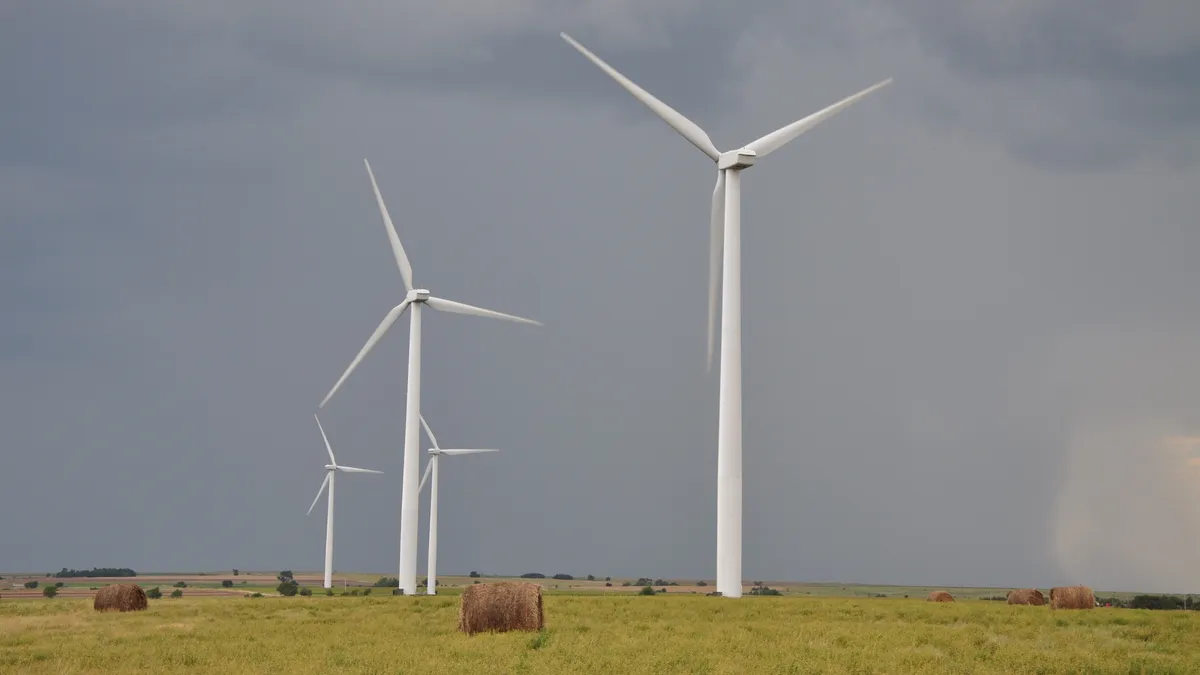Dive Brief:
-
The American Clean Power Association, the Sierra Club and other groups on Friday urged the Federal Energy Regulatory Commission to reject the Southwest Power Pool’s proposal to adopt capacity accreditation reforms they say discriminate against wind, solar and energy storage resources.
-
The SPP’s proposal includes improvements over the status quo but overall is unjust and unreasonable, according to the trade groups and environmental groups, which filed separate, joint comments at FERC. “The Clean Energy Associations support adoption of an SPP capacity accreditation framework that supports system reliability, provides clarity to market participants as to the value of resources, and treats resources comparably,” the trade groups said. “The [SPP] filing fails on all counts.”
-
The Sierra Club, Natural Resources Defense Council and Sustainable FERC Project also filed a complaint at FERC on Friday over SPP’s current accreditation methodology. FERC can respond to the complaint with specific guidance for an accreditation plan, potentially avoiding a long stakeholders process that could ensue if the agency simply rejects SPP’s proposal, according to the groups.
Dive Insight:
Grid operators such as the Midcontinent Independent System Operator, PJM Interconnection and ISO New England have been making changes to how they measure capacity to ensure they have adequate resources to maintain grid reliability.
The SPP in February proposed adopting an effective load carrying capability accreditation methodology for wind, solar and energy storage resources and a performance-based accreditation methodology for thermal and other conventional generating resources.
SPP has been working to improve its capacity accreditation rules for several years. FERC approved a previous accreditation proposal in August 2022 but reversed that decision in March 2023.
The proposed ELCC and PBA methodologies will allow SPP to have a more accurate understanding of which resources will be available when needed based on their past performance, according to the grid operator, which operates the electric system and wholesale power markets from eastern New Mexico to Montana.
However, SPP’s proposal fails to adequately address key reliability issues, including the risk that large numbers of gas-fired power plants won’t run during extremely cold weather, ACP, the Solar Energy Industries Association, Advanced Energy United and the Advanced Power Alliance said in a joint filing.
The trade groups contend the proposal will increase ratepayer costs because SPP will have to buy high-priced power when power plants that have been given unrealistically high accreditation fail to perform when they are most needed.
The Sierra Club, NRDC and the Sustainable FERC Project, in a joint filing, said SPP’s proposed methodology for thermal power plants fails to evaluate resources based on their performance during high-risk hours.
“The over-accreditation of thermal resources in SPP’s proposed thermal methodology, if not corrected by the Commission, will impose undue costs on ratepayers, and presents a long-term risk to the reliability of the [regional transmission organization’s] grid,” the groups said.
Without taking a position on the proposal, the SPP’s independent market monitoring unit said the plan is an improvement over SPP’s current accreditation process, but it may lead to inequitable outcomes because of differences between the PBA and ELCC accreditation methods.
Meanwhile, SPP is failing to address resource adequacy in a way that lets load-serving entities operate “without fear of significant economic consequence and penalties,” Golden Spread Electric Cooperative told FERC. “Nor does the current SPP approach produce reliable price signals that ensure that future investment will lead to sound resource planning and ensure that consumers are not overburdened with excessive cost responsibility for reliability.”
SPP’s capacity accreditation proposal includes last-minute changes that weren’t vetted by all stakeholders, according to the Amarillo, Texas-based cooperative utility.
Further, the proposal will likely be affected by changes under consideration by SPP stakeholders, such as fuel assurance requirements and a seasonal capacity construct, according to Golden Spread.
“The fact that language already is under development to change the language in the instant filing calls into serious question whether the Commission can conclude here that the tariff is clear, just and reasonable, and establishes parameters for resources that will meet eligibility requirements for SPP’s resource adequacy program,” the cooperative utility said.














